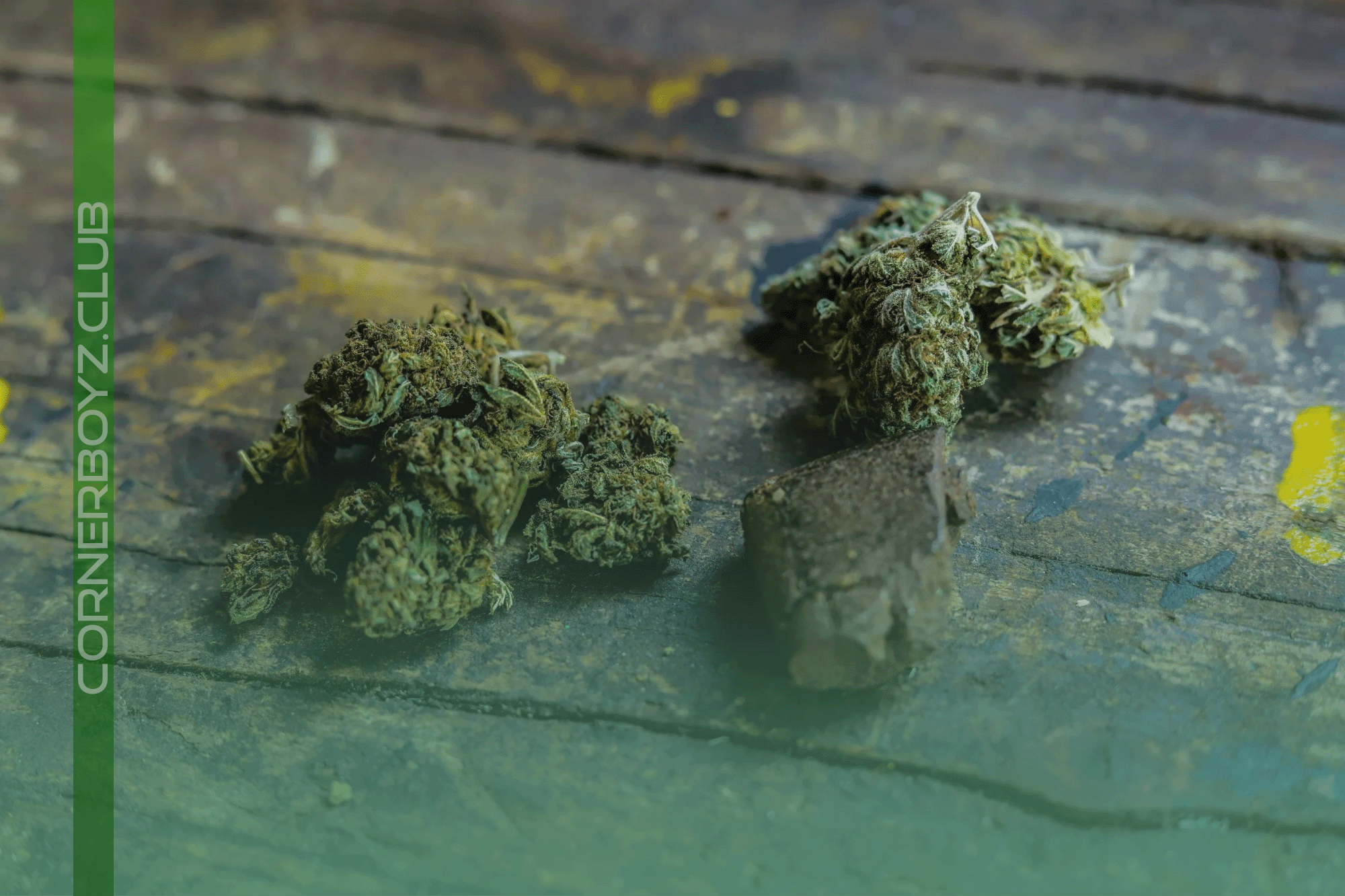
What is hash, you ask? All the goodness of cannabis concentrated into a play doh-like substance that retains all the tasty terpene flavors of the plant. Hash, or hashish, is the original form of cannabis concentrate. It is made from repeatedly compressing together the resin, or trichome, glands of the cannabis plant. Learn more about hash here!
Hash consumption began a little later than cannabis use and likely started in Persia and Central Asia. Hash made its way along the Silk Road into the Middle East and was probably more often used as incense, a highly valuable commodity at the time. The earliest form of Hash, known as hashish, was produced by gently rubbing growing cannabis plants together. References to hashish date back as early as the 12th and 13th centuries – it’s one of the oldest forms of cannabis concentrates! Woven sieves were eventually used to separate the trichomes from a dried and cured form of the plant to create something closer to what we know as hash today. For all of our historians out there, check out this article for a fuller history of hash in the ancient world into the 18th and 19th Centuries.
After the passage of the Arizona Medical Marijuana Act (AMMA) in 2010, medical patients were still being arrested for possession of concentrates, edibles and other derivatives of cannabis. In 2013, Arizona medical marijuana patient Rodney Jones was arrested for possession of drug paraphernalia and possession of about 1.5g of hashish which was labeled a “narcotic” by the prosecution. It was argued that the AMMA only applied to the dried flower and not to the derivatives of it including edibles, concentrates and hashish. Rodney Jones was sentenced to 2.5 years in prison.
In June of 2018, the Arizona Court of Appeals reviewed this case and ruled that cannabis extracts were illegal under Arizona law. This ruling came from a legal discrepancy about the difference between “marijuana” and “cannabis.” Under state law, “usable marijuana” is defined as the dried flower of marijuana and any preparation of it. Many folks in the industry argued that cannabis concentrates were protected under that law as “preparation of cannabis.” The state however, backpedaled to a 1973 definition that defined “usable marijuana” as the only the marijuana flower bud. Under this definition, anything beyond or extracted from the flower bud was defined as “cannabis”, a “narcotic drug” carrying a class 4 felony charge in the state of Arizona. *collective sigh*
This case later went to the Arizona Supreme Court in 2019 which unanimously ruled that all parts of the cannabis plant, including hash, are legal to use and possess under the AMMA. Though he had already served his sentence, Rodney Jones’ conviction and sentence were vacated.
This landmark decision was a big win for the cannabis community. Medical cannabis users could now officially legally purchase, possess and use cannabis edibles, concentrates and vapes. This allowed many more medical marijuana patients access to more medicinal options. Furthermore, this case opened the door for hash to come back on to the Arizona cannabis scene.
Welcome back hash, welcome back.
Source: theprimeleaf.com